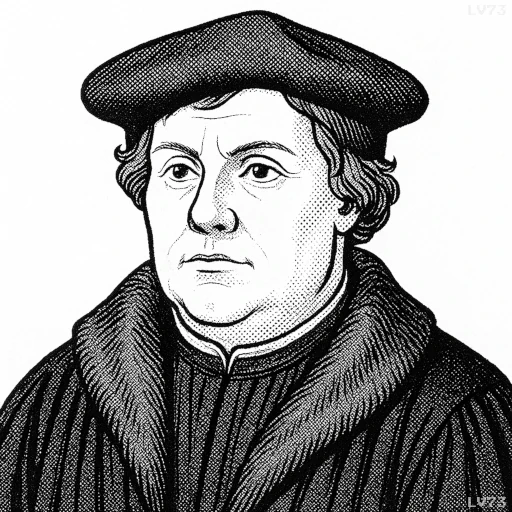“For where God built a church, there the Devil would also build a chapel.”

- November 10, 1483 – February 18, 1546
- Born in the Holy Roman Empire (Germany)
- Reformer, theologian
table of contents
Quote
“For where God built a church, there the Devil would also build a chapel.”
Explanation
In this quote, Martin Luther speaks to the persistent presence of evil or temptation even in places of spiritual sanctity. He suggests that where God’s work is evident—where a church is established to preach the gospel, foster faith, and guide believers—there will also be opposition from the Devil. The “chapel” that the Devil builds symbolizes the corruption, falsehood, or counterfeit spirituality that seeks to undermine or distort the truth of God’s word. Luther’s statement reflects the spiritual warfare that believers face, where the forces of good and evil constantly contend, especially in the places where God’s influence is most prominent.
Luther’s views were shaped by the theological context of his time, particularly during the Protestant Reformation. The Reformation was a direct challenge to the Catholic Church’s authority, which Luther believed had become corrupt and distorted by human greed and false teachings. He saw the Devil’s work in the deception of the church’s hierarchy, indulgences, and false doctrines. Luther’s quote highlights the idea that even in the most holy and righteous institutions, evil forces will try to infiltrate and distort the truth. This perspective underscores his belief in the constant vigilance needed in the spiritual life to remain true to God’s word and resist the temptations of falsehood and sin.
In modern times, this quote serves as a reminder of the constant battle between good and evil in all areas of life, especially within religious and spiritual communities. Whether it’s misuse of power, corruption, or the spread of false doctrines, this idea speaks to the ongoing challenge to maintain authenticity in faith and practice. It also reflects the need for spiritual discernment in a world full of competing messages, urging individuals to remain rooted in truth and be wary of counterfeit beliefs that might arise within their communities or even their own hearts.
Would you like to share your impressions or related stories about this quote in the comments section?

